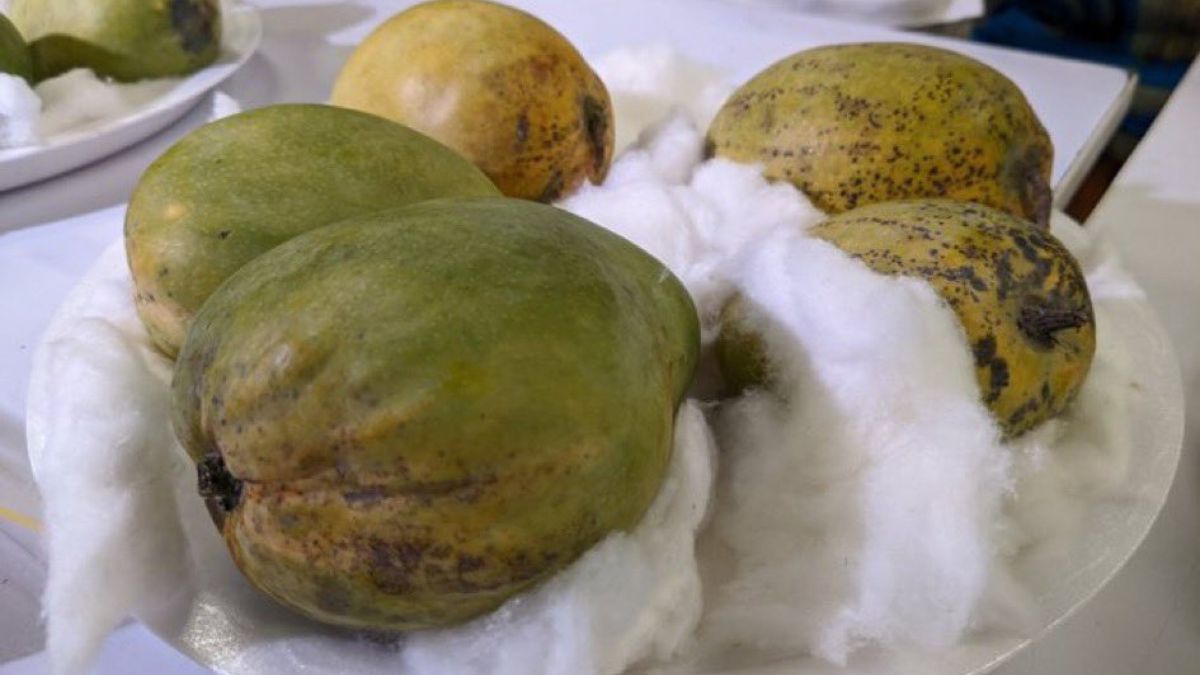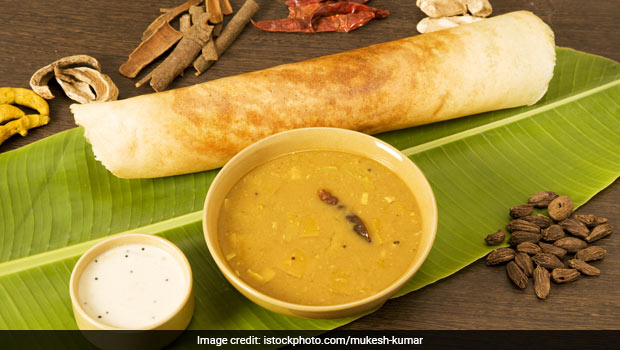From sushi counters in Tokyo to brunch menus in New York, salmon is truly everywhere. Once considered a luxury ingredient reserved for fine dining, it has now become one of the most sought-after proteins on restaurant menus across the globe. The surprising twist is that it is farmed salmon, rather than wild-caught, that is driving this surge in popularity, making its way onto plates from São Paulo to Shanghai and now even India. But what makes this fish so irresistible to chefs, restaurants, and diners alike? Let us break it down and explore why salmon has become a global culinary favourite.
Also Read: Love Seafood? Here Are 5 Quick And Delicious Snacks You Can Make In Under 60 Minutes
Here Are 6 Reasons Farmed Salmon Is Taking Over Menus Around The World:
1. Versatile On Every Plate
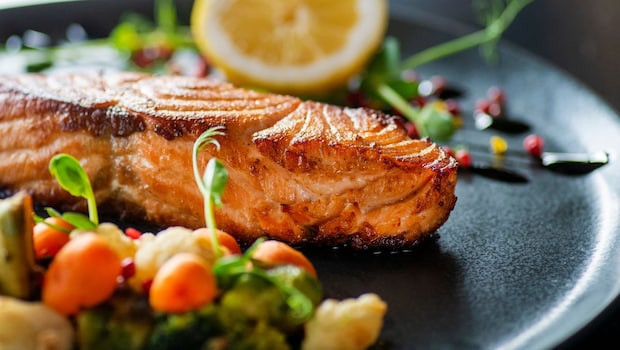
Salmon adapts itself like few other ingredients. In Japan, it turns into delicate sashimi. In Central Europe, it goes straight on the grill. In America, it is smoked and plated on bagels. And in India, it can hold its own against mustard oil, garam masala, or even a full tandoori marinade. As Chef Vicky Ratnani puts it, "Salmon's buttery nature works brilliantly with Indian flavours. I love cooking it with mustard oil, tandoori paste, cumin, coriander, garam masala, and even amchur." That adaptability is one reason chefs across cuisines keep picking salmon over other proteins.
2. Good For You, Great On The Plate
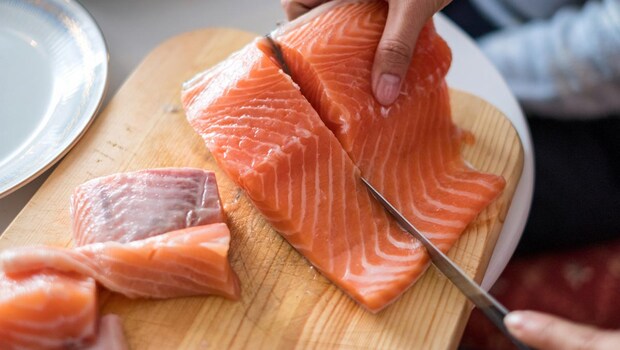
Photo Credit: iStock
Consumers today want indulgence without guilt, and salmon fits that bill. Packed with omega-3 fatty acids, lean protein, and essential minerals, it appeals to wellness-conscious eaters who want something more exciting than grilled chicken but equally nutritious. In India, where fitness and healthy eating are trending, salmon's balance of richness and health makes it a rising favourite.
Also Read: A User's Guide to Buying Seafood
3. Farmed Salmon Makes It Reliable

Wild salmon has long been expensive, seasonal, and logistically tough to source. Farmed salmon, however, changed the game. Companies like AquaChile are producing salmon at scale, ensuring steady supply chains that make it easier for restaurants and e-commerce platforms to sell. As José Miguel Ugarte, Global Sales Director of AquaChile, points out, "China barely ate fish fifteen years ago. We currently transport more than 300 tonnes of fresh produce every week, and we export more than 150,000 metric tonnes annually." That kind of consistency allows salmon to move from luxury menus to more mainstream dining.
4. Affordable Without Losing Premium Appeal
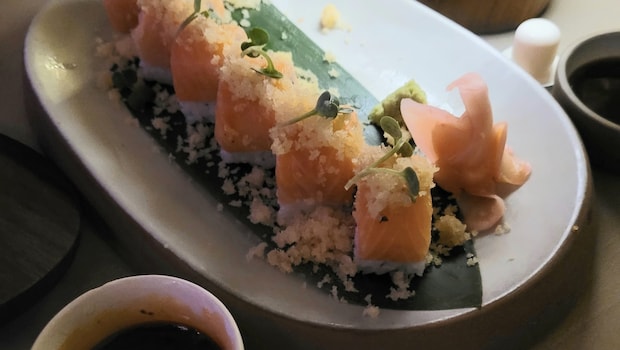
Farming has made salmon relatively more affordable than before, while still keeping its premium feel. For chefs, it is an ingredient that can elevate a dish and still make sense on a menu without pricing out diners completely. For consumers, salmon feels like a treat without being unattainable, which explains why it is appearing in mid-tier restaurants, delivery kitchens, and even online retail packs.
5. Perfect For Fusion And Bold Flavours
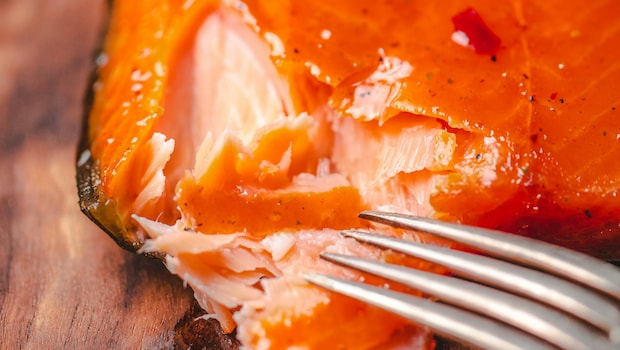
Photo Credit: Unsplash
Unlike delicate fish that cannot handle strong spices, salmon works beautifully with Indian flavours. Its fatty, buttery texture holds up against chilli, cumin, coriander, and tangy marinades. Indian chefs are already experimenting with dishes like tandoori-marinated salmon, salmon curry, and even salmon with lime rice and pickled cucumber. Events like AquaChile's recent showcase in India aim to push these boundaries further, introducing the fish to chefs and home cooks alike.
Also Read: Prawn Pakoda, Fish Pakoda And More: 7 Seafood Snacks That'll Be Ready Under 20 Minutes
6. Restaurants Love A Star Ingredient

Photo Credit: iStock
In the business of dining, presentation and perception matter. Salmon has become shorthand for modern, global dining. It instantly elevates a menu, whether as a sushi roll, a grilled fillet, or a fusion appetiser. For restaurants, it signals freshness, health, and a cosmopolitan appeal that works with both international tourists and urban locals. That makes it a favourite not just in fine dining but also in hotels and catering.
What Salmon Means For India
India, with its bold spices and love for fish in coastal regions, presents both a challenge and an opportunity. The challenge: introducing salmon to a country that already has rich local fish traditions. The opportunity: integrating salmon into these traditions and creating something new. With e-commerce, Horeca (hotels, restaurants, catering), and chef-led experiments, farmed salmon is set to move beyond sushi counters into everyday menus.
As Ugarte sums it up, "We are convinced salmon can blend seamlessly into Indian cuisine. It is spicy, it is unique, but salmon elevates it further. This is just the beginning of an exciting journey."
(Disclaimer: Except for the headline, this story has not been edited by NDTV staff and is published from a syndicated feed.)
